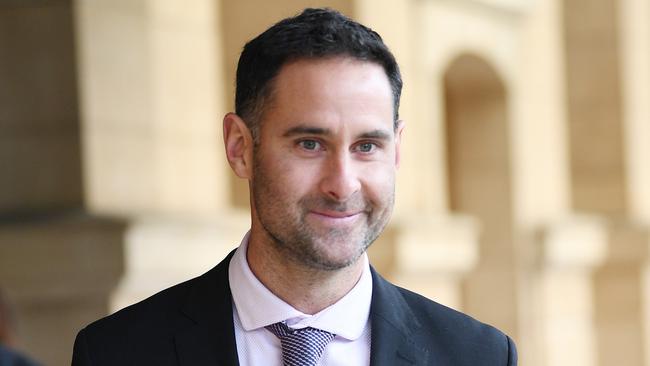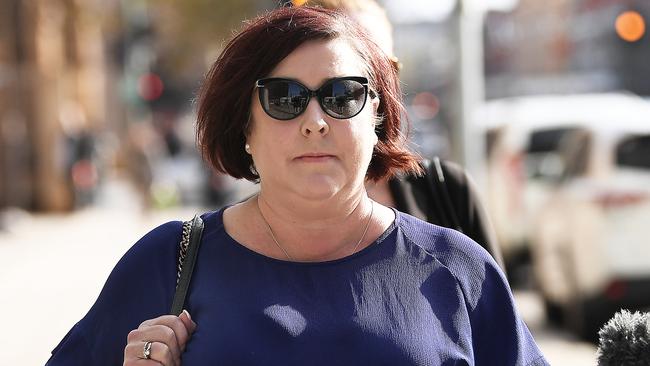SA lawyers Andrew Robert Graham and Catherine Jayne Moyse set to keep their careers despite admitting serious criminal offences
A cocaine-snorting Adelaide lawyer who resorted to bribery will still be allowed to practise law – as will a peer embroiled in a magistrate’s corrupt actions.

Police & Courts
Don't miss out on the headlines from Police & Courts. Followed categories will be added to My News.
An Adelaide lawyer who tried to bribe a security guard who caught him snorting cocaine will keep his career – as will a fellow lawyer who was involved in a magistrate’s corrupt actions.
The Supreme Court has permitted Andrew Robert Graham to continue to practise, under strict supervision, following consent orders drafted by the legal profession’s peak bodies.
The court is also expected to ratify similar consent orders for Catherine Jayne Moyse – the daughter of corrupt senior police officer Barry Moyse – in the new year.
Graham, 36, of Vale Park, pleaded guilty to administering a controlled drug to another person and to attempting to pervert the course of justice.
In August 2019, he followed two men into a nightclub toilets and asked to share their cocaine, showing them how to snort it off a car key.
That interaction was filmed by a security guard and, in the mistaken belief his actions would not result in a trial, Graham offered him $50 to look the other way.
Facing a maximum 10-year prison term, $50,000 fine or both, Graham was released on a 12-month bond by the District Court.
He subsequently asked the Supreme Court to permit him to resume his career, agreeing to be supervised by another practitioner and abide by conditions governing what he can and cannot do.
Supreme Court records show that, on December 10, consent orders written by Graham’s counsel, the Law Society and the Legal Profession Conduct Commissioner were ratified.
Moyse, 49, pleaded guilty to conspiring with then-magistrate Bob Harrap to abuse his public office.
She went to Harrap for advice on handling a client’s demerit point appeal – the District Court ruled Harrap “adversely influenced” and “misled” her.

For hearing that case himself despite the conflict of interest, and for lying about his own speeding fines, Harrap was jailed for 18 months with a 12-month non-parole period.
Moyse was spared a conviction and fined $600 – a penalty against which the Office of the Director of Public Prosecutions has since filed an appeal.
On Friday, counsel for Moyse said that appeal was no reason for the court to delay her application to resume practice.
It had no bearing, they said, on “a determination that our client is a fit and proper person” to work as a lawyer.
Counsel for the Commissioner agreed with that submission, while counsel for the Law Society asked for time to consider the proposed consent orders.
Justice David Lovell adjourned the matter until February.



